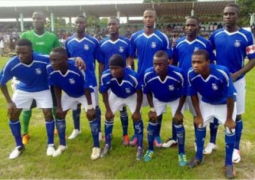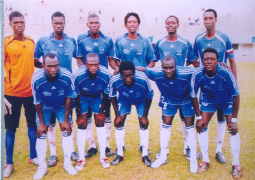Former director of operations at the National Drug Enforcement Agency (NDEA), Mbye Njie, on Friday had his bail application turned down by the Banjul Magistrates’ Court, presided over by Principal Magistrate Taiwo Ade Alagbe.
Njie, who is standing trial on a four-count charge, including official corruption and abuse of office, filed a bail application before the said court.
Delivering the ruling, the trial magistrate told the court that he had carefully listened to the submissions of both the defence counsel, L.K Mboge, and the Director of Public Prosecutions (DPP) S.H Barkun.
He added that the defence counsel filed the motion dated 14 August 2012 on behalf of the accused person, and that the defence counsel’s motion contained a 15-paragraph affidavit.
The magistrate also stated that the state filed an affidavit in opposition, which contained 4 paragraphs, and that according to the DPP, they relied on all the paragraphs.
Magistrate Alagbe further adduced that regarding the affidavit in opposition filed by the DPP, the defence counsel stated that the affidavit was just hearsay, because the DPP did not disclose anywhere nor told the court where he got his sources of information, but merely said the affidavit was deposed by a legal clerk at the Attorney General’s Chambers.
On the other hand, the DPP contended that the defence counsel’s affidavit was defective, and that the accused person was charged with official corruption which was a serious matter, being a senior officer at the NDEA.
Still delivering his ruling, the trial magistrate told the court that the DPP further submitted to the court that the prosecution witnesses in the case all were the accused person’s subordinates, and if he was granted bail he would interfere with the prosecution witnesses.
Principal Magistrate Alagbe stated that the only issue which arose for determination was whether the accused person should be granted bail.
“I have totally agreed with the learned Director of Public Prosecutions,” he said.
He added that bail was a right for everybody who was charged before any competent court of law, but there were factors which the court needed to consider first before giving out bail to any accused person or suspect.
He cited factors that should be considered, such as, whether the accused person would interfere with the prosecution witnesses; whether there is likelihood that the accused person might jump bail; and whether the accused person was an influential officer who could easily convince the prosecution witnesses.
“I have agreed with the DPP going through the affidavit before the court, which indicates that all the prosecution witnesses were junior to the accused person. So, therefore, there is likelihood that the accused will interfere if he is granted bail,” the magistrate stated.
The court therefore did not grant bail to the accused person, and further ordered that the case be heard twice a week for a speedy trial.
The case was then adjourned till 22 August 2012.



